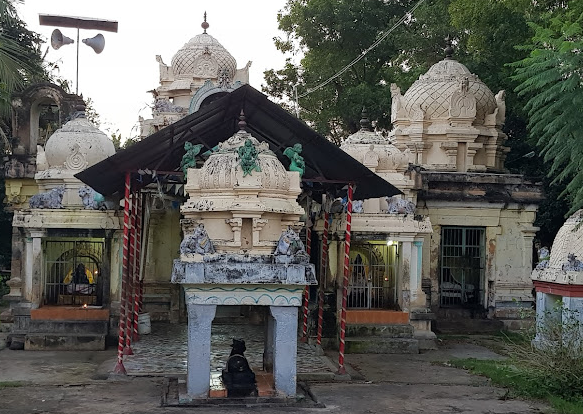It is believed that Lord Sri Rama worshipped at this temple before proceeding to Lanka. Due to a delay in receiving a Linga from Hanuman, Sri Rama is said to have made a Linga from sand, known as the Prithvi Linga, to keep the puja schedule. The Linga brought by Hanuman is also present in the temple, referred to as Hanumantha Linga.
One notable story involves a trader named Dananjayan, who incurred leprosy after unknowingly having an intimate relationship with his stepmother. He was cured through his sincere prayers to the Lord.
Administration History :
The temple has a long history of administration, beginning with its original construction before the 7th century, as it was sung by Thirugnanasambandar. It was later reconstructed during the Chola period and further extended during the Thanjavur Nayak period. The Nattukottai Nagarathars maintained the temple, and it is currently under the control of the Hindu Religious and Charitable Endowments Department (HR&CE) of the Tamil Nadu government.
